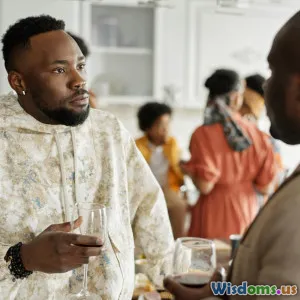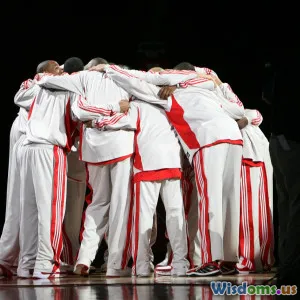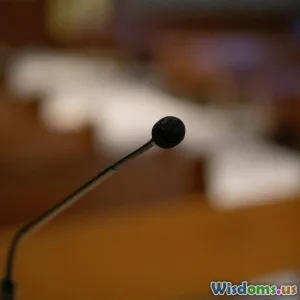
The Impact of Mythology on Modern Culture
7 min read Explore how ancient myths shape modern culture—from storytelling to media, art, and psychology. (0 Reviews)
The Impact of Mythology on Modern Culture
Introduction: Timeless Tales in a Modern World
Since time immemorial, mythology has served as a backbone for human storytelling, embodying the beliefs, fears, and hopes of civilizations. But despite being rooted in ancient times, myths continue to exert a considerable influence on contemporary culture. From blockbuster movies and bestselling novels to psychological theories and branding strategies, the impact of mythology pervades aspects of our daily lives. What is it about these age-old tales that resonate so deeply in the 21st century? This article explores the multifaceted ways mythology informs and enriches modern culture—rekindling timeless imagination and shaping identities across the globe.
The Enduring Power of Mythology
Mythology functions as humanity's collective memory and imaginative expression. Though specific myths arise from cultural contexts such as Greek, Norse, Egyptian, or indigenous stories, many share universal themes like heroism, creation, morality, and the battle between good and evil. These foundational narratives offer a framework for understanding the world and ourselves.
Archetypes and Universal Symbols
Renowned psychologist Carl Jung emphasized the role of mythology in uncovering universal archetypes—recurring characters or motifs like the Hero, the Trickster, or the Wise Old Man. These archetypes appear across cultures and epochs, revealing common psychological patterns. Jung famously stated, “Mythology is the secret opening through which the inexhaustible energies of the cosmos pour into human cultural manifestation.” Today, artists, writers, and filmmakers consciously or unconsciously incorporate archetypes to enrich storytelling and evoke emotional resonance.
Mythology as a Moral Compass
Beyond storytelling, myths often encapsulate ethical teachings and societal norms. The Greek tale of Icarus warns against hubris, while many Native American legends emphasize harmony with nature. These narratives help transmit values across generations, informing contemporary discussions on ethics, identity, and purpose.
Mythology in Literature and Popular Media
Modern literature and media are perhaps the most visible arenas where mythology thrives.
Reimagining Myth in Literature
Authors like J.R.R. Tolkien, whose "Lord of the Rings" saga sketches its own mythology inspired by Norse and Anglo-Saxon myths, illustrate creativity fueled by ancient sources. Similarly, Madeline Miller’s “Circe” and Neil Gaiman’s “American Gods” reinterpret Greco-Roman and various mythologies for modern audiences, blending classical themes with contemporary issues.
Mythology as the Foundation of Blockbuster Films
Hollywood has long mined mythology for compelling narratives—from the epic trials of Hercules and the cryptic journeys in "Clash of the Titans" to the Norse-inspired gods and heroes of the Marvel Cinematic Universe’s "Thor" series. Such stories attract massive audiences, perhaps because they echo fundamental human questions about destiny, belonging, and valor.
Video Games and Interactive Storytelling
The global video game industry often employs mythic motifs to deepen engagement. Titles like "God of War" tightly weave Norse and Greek mythology into gameplay and character arcs, immersing players in mythic atmospheres while exploring archetypal quests.
Mythology’s Influence Beyond Entertainment
Psychological and Therapeutic Applications
Modern psychology continues to mine mythology for insights. Joseph Campbell’s exploration of the "monomyth"—the hero’s journey—has helped therapists facilitate personal growth by framing life’s challenges as epic journeys. Narrative therapy employs myths and stories to help individuals rewrite their life scripts meaningfully.
Corporate Branding and Myth-Inspired Marketing
Brands often borrow mythological imagery to evoke particular values or inspire consumer loyalty. Nike, the global sportswear giant, derives its name and logo from the Greek goddess of victory. Such symbolism taps into deep cultural reservoirs, offering narratives of triumph and aspiration that resonate subconsciously.
Education and Cultural Identity
Educators use mythology to teach language, history, and ethics, fostering cultural awareness. Incorporating myths into school curricula worldwide ensures ancient legends continue to shape young minds and preserve cultural heritage in a globalized society.
Real-World Impact: Examples and Insights
- Star Wars and Mythic Structure: George Lucas explicitly modeled Star Wars on the hero’s journey archetype, which has contributed to the saga's enduring popularity across generations and cultures.
- Psychological Resilience and Myth: Studies in narrative psychology suggest engaging with mythic stories can bolster resilience by framing personal adversity within a meaningful universal context.
- Tourism and Myth: Sites such as Greece’s Mount Olympus or Egypt’s pyramids draw millions annually, demonstrating how myths promote cultural tourism and economic benefits.
According to a 2019 report by the International Federation of Film Archives, myth-based stories consistently perform well across global markets, indicating their universal appeal transcends linguistic and cultural barriers.
Conclusion: Mythology as a Living Cultural Force
Far from being relics of ancient belief systems, myths remain vibrant sources of inspiration and guidance in our modern world. Their narratives shape how we tell our stories, confront our challenges, and imagine our futures. Whether through literature, popular culture, psychology, or commerce, mythology provides a timeless framework that continues to enrich human creativity and understanding. In a rapidly evolving world, these myths anchor us, reminding us of shared human experiences and the enduring power of storytelling.
As we engage with these ancient narratives, we participate in a grand cultural conversation—connecting the past, present, and future through the transformative power of myth.
“Myths are public dreams, and dreams are private myths.”—Joseph Campbell
Rate the Post
User Reviews
Popular Posts





















